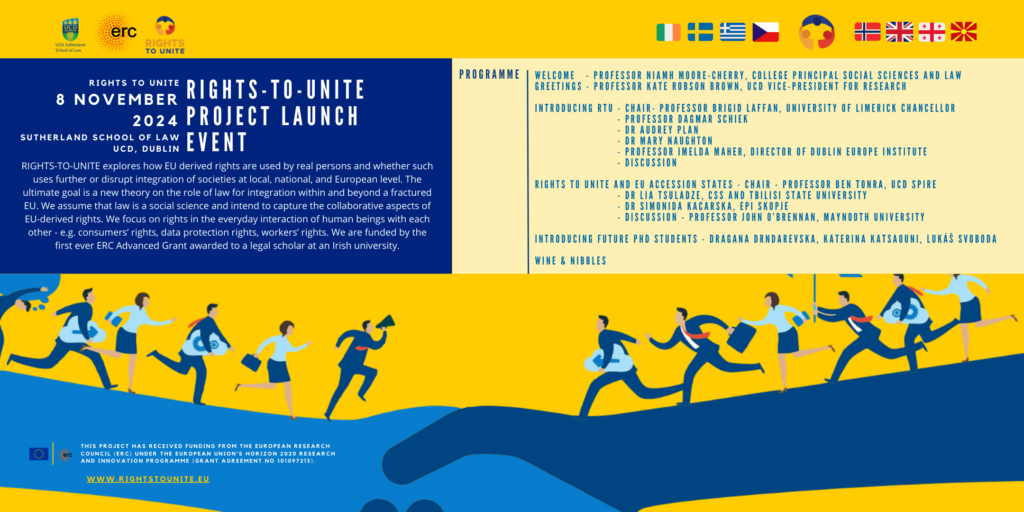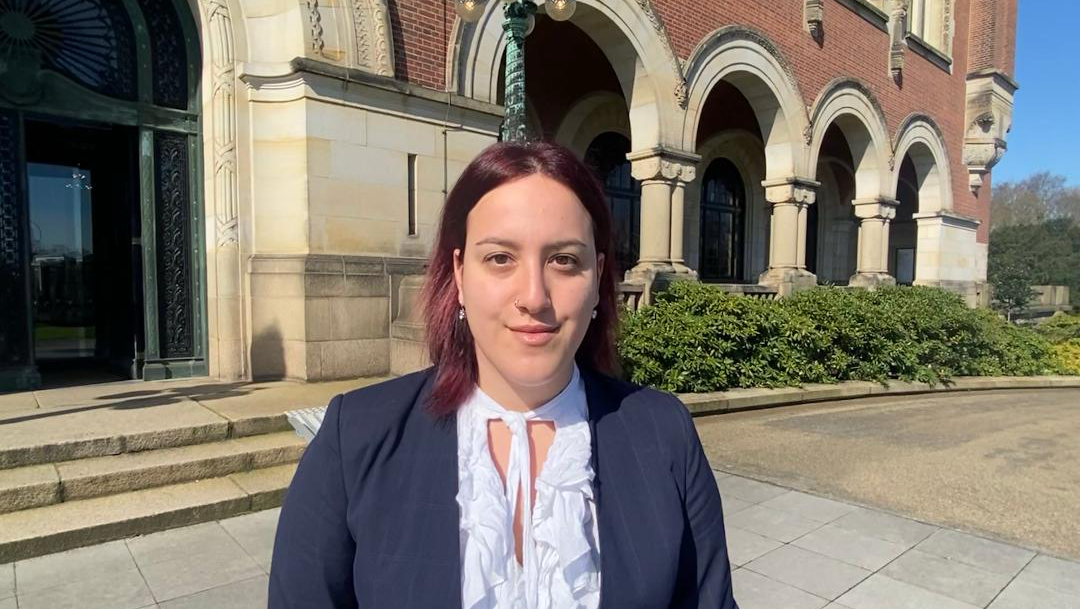In this introductory series, we are delighted to introduce the talented PhD students who will be joining our project in January 2025. First, meet Aikaterini Katsaouni from Greece.
Hi all!
My name is Aikaterini (Katerina) Katsaouni, and I am an Attorney-at-Law from Athens, Greece. Born in 1999, I never imagined myself studying law while growing up. I couldn’t envision which branch of law would allow me to feel genuinely useful and contribute to the improvement of people’s lives, as doctors or teachers do. However, inspired by my father’s successful legal career, I decided to follow his path and pursue my undergraduate studies at the Faculty of Law, National and Kapodistrian University of Athens (Oct 2017 – Aug 2022), graduating with a 7.08/10.
Throughout my studies, I differed from many of my classmates, as becoming a lawyer had never been my dream. I constantly questioned which path I should take after graduating from Athens Law School, and none of the options seemed compelling enough for me to pursue wholeheartedly.
On November 18th, 2021, I found myself exploring LLM programs in the Netherlands, a country I had always dreamed of living in. By chance, I discovered the Advanced Studies Program in International Children’s Rights at Leiden University, which immediately resonated with me. A few months later, I was accepted, and the best journey of my life began. Finally, my studies gained the meaning I had long been searching for.
My time in the Netherlands shaped me both legally and personally, and it affirmed my desire to defend human rights, particularly for vulnerable groups such as children. My thesis focused on the recognition of Rainbow Families in Greece, aiming to demonstrate that adoption by LGBTQ+ individuals aligns with the “Best Interest of the Child” principle (UN CRC, Art. 3). In August 2023, I graduated with a 7.70/10, and a few months later, I witnessed part of my thesis vision come to life as the Greek Parliament passed a bill extending equal parental rights to same-sex couples, including the right to adopt.
After completing my LLM, I returned to Greece to finish my legal traineeship and take the Bar exams. Following nearly a year of working as a Trainee Lawyer in a prominent firm specializing in immigration and real estate law, I obtained my license from the Athens Bar Association, ranking 11th in my cohort. As of September 6th, 2024, I am officially an EU-qualified Attorney-at-Law.
During this period, Professor Dagmar Schiek, who I am deeply grateful to and who is now my PhD supervisor, informed me about the PhD scholarships for the RIGHTS-TO-UNITE project at the Sutherland School of Law, UCD. Pursuing a PhD was never an end in itself for me; rather, it is a means to drive impactful change through dedicated research and practical application. The RIGHTS-TO-UNITE project excites me because it not only aligns with my professional and academic background but also provides an opportunity to explore and influence the integration of rights within the EU and its neighbouring regions. I am particularly drawn to the project’s focus on small states and its comprehensive approach to European integration.

As a Greek, I am especially excited that Greece is one of the case study countries. This connection deepens my personal and professional interest in contributing to the project’s success, particularly in examining how EU-derived rights function in my home country.
My research will focus on the extent to which EU-derived rights and soft law measures influence the integration of labour rights in Greece, especially in the context of third-country national migration. The integration of labour rights within the EU framework involves various instruments, including binding regulations, directives, and non-binding recommendations and declarations (soft law).
Integration, in this context, refers to how these EU-derived rights and measures are adopted, implemented, and harmonized within member states’ national legal and social frameworks. Greece, with its unique socio-economic and historical context, faces distinct challenges in integrating these rights, particularly in relation to significant migration from non-EU countries. The existing literature leaves a notable gap regarding the combined impact of EU-derived rights and soft law on labour rights in Greece, particularly concerning the labour integration of migrants from third countries.
My research aims to address this gap by exploring how these EU instruments could be applied in Greece and their possible impact on third-country nationals. I cannot express how enthusiastic and grateful I am to soon begin this journey in Dublin!
Aikaterini will be officially introduced at our hybrid project launch which takes place on 8 November, for which registrations are still open via Eventbrite for both, in person & online attendance.

